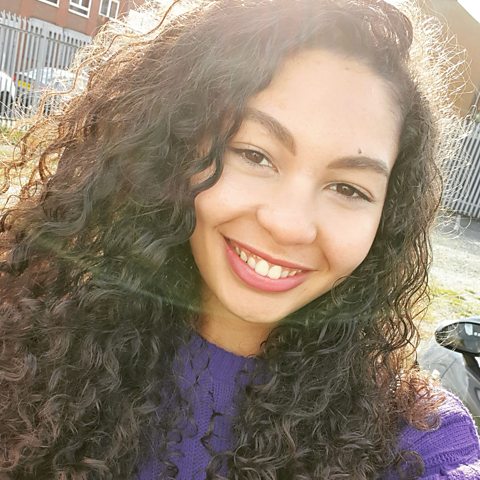On 26 March, people all over the UK will be wearing purple to help raise awareness and start conversations about epilepsy.
Epilepsy is a chronic neurological condition that can happen in anyone at any age, but is most commonly diagnosed in children and people over the age of 65. Itтs estimated to affect one in 100 people in the UK.
We spoke to Mica Howard, a 24-year-old тepilepsy warriorт, as she defines herself, about living with epilepsy since she was diagnosed aged 16.
What is epilepsy and who does it affect?
Epilepsies are a group of conditions that have one thing in common: a tendency to cause тseizuresт that start when electrical signals get scrambled in the brain. Seizures can happen for a number of reasons, such as low blood sugar or a high fever, and you can experience a seizure without being diagnosed with epilepsy. But epileptic seizures always start in the brain, and can affect people frequently.

Mica suffers from тtonic clonicт seizures, the type most commonly associated with epilepsy - which you may have seen presented in TV and film. This is when a person collapses and their muscles relax and tighten, so they cannot control their body movements - also known as тfitsт or тconvulsionsт.
тIтll lose consciousness, fall to the floor and my body will convulse,т Mica says. тThey last around two to three minutes and nothing can be done to stop them.т
But there are several different types of epileptic seizure which present differently than fits, which can affect awareness and consciousness without involuntary body movements.
It is a lifelong condition for most people, but it can be controlled with medications and some people can eventually become completely тseizure freeт.

'It took a long time to accept that I have epilepsy.'
In most cases, the cause of epilepsy is not always known - in fact, one in three people with epilepsy seem to just be born with it. Sometimes it can be a result of things that damage the brain, such as head injury, stroke or infection. But it can also be a temporary side effect of certain substances or a tumour putting pressure on an area of the brain.
What triggers a seizure can differ from person to person, but common triggers include tiredness, stress, alcohol, and not taking medication. When people know what triggers their seizures, they may be able to avoid these triggers. However, as it can start at any age, it can be difficult to pinpoint what a trigger might be. Mica says this has affected her mental health, as it can happen at any time.
тBeing rundown and feeling stressed really increases my chances of having a seizure so this means I have to take care of myself by doing a lot of self care,т she says.

'Every single seizure is traumatic.'
Seizures can make day-to-day tasks really difficult. They can sometimes be prevented if triggers are known, but they canтt be treated.
тSome people get a warning called an aura which can be anything like a funny taste, smell or a feeling of dУЉjУ vu,т says Mica. тI donтt get a warning before losing consciousness so I canтt move myself out of harmтs way.т
A common trigger for seizures is тstrobeт effect - rapidly flashing lights or images. This can make navigating social media hard for people with epilepsy, as graphics often flash without warning. But as awareness grows, steps are being taken towards accessibility for people with photosensitive epilepsy. You may have seen тflash warningsт in games or before videos online, and platforms such as Tiktok have introduced these warnings to give people the choice to continue with a video and help keep users safe.


'Sharing my experience has been therapeutic and freeing.'
Epilepsy awareness is not only helpful for navigating the online world, but Mica believes it can also help people with epilepsy feel less alone. When she started therapy and opened up about how epilepsy affects her, she began to find everyday ways to help handle it.
тThis was the first step on really improving my mental wellbeing, and good mental wellbeing is incredibly important for me because stress is one of my seizure triggers.т
She suggests lots of simple but effective self-care tools to help mental health - this can be anything from going for a walk, meditation or reading a book. While it is a lifelong condition for most people, there are support systems available and awareness and education around epilepsy can help make living with it easier. Mica points out the power of sharing your experiences and not battling alone:
тWeтre called epilepsy warriors for a reason,т she concludes. тSpeak about your epilepsy because itтs freeing, and your words might inspire others to do the same. Itтs okay to have bad days because living with epilepsy can be pretty rough, but keep going because better days are coming.т

What exactly is self-care?
What does self-care actually mean and why is it so important?

Why it's healthy for you to open up and talk
We spoke to Lucia from Samaritans about why you should open up and talk.

Five DIY self-care activities to relax at home
Treat your household to a homemade spa day or simply relax with these DIY self-care activities.
